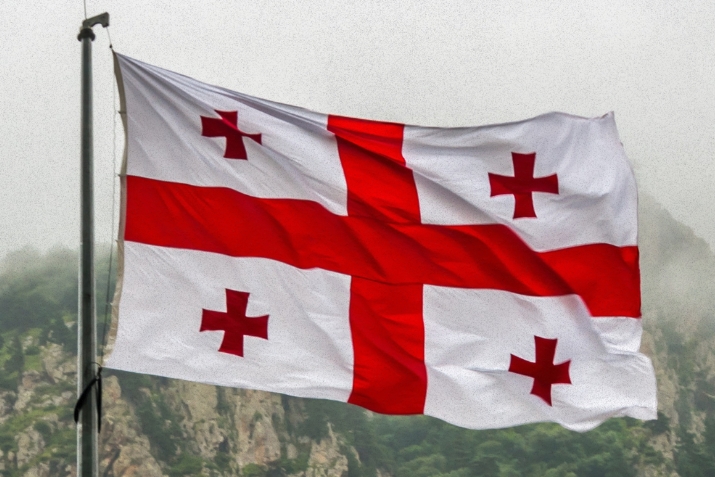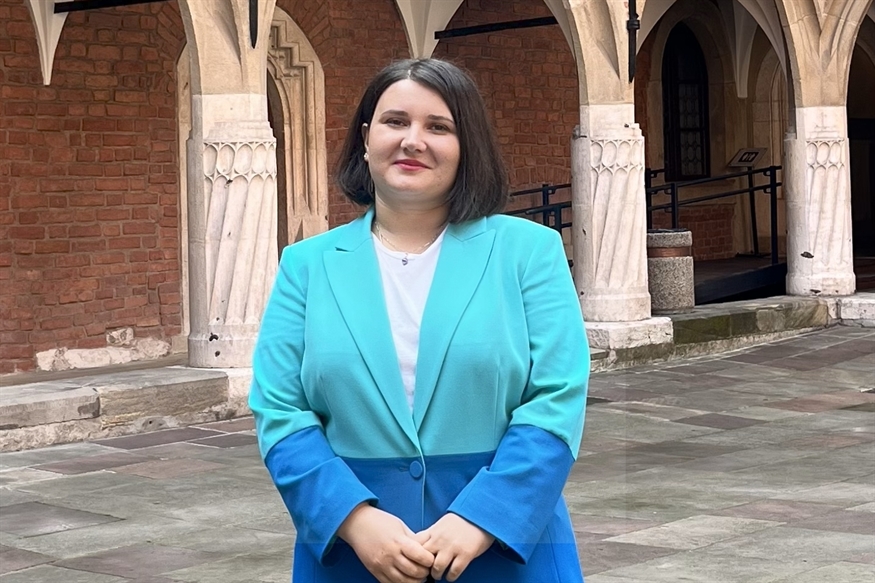Civil Society Under Pressure: The Georgian Case

Georgian civil society has historically been subject to various forms of pressure and targeting by the ruling party. However, the past three years have been particularly challenging. In 2023, the ruling party, 'Georgian Dream,' introduced the Foreign Agents Law, which, despite widespread protests, has now been enacted as a binding legal framework. This experience provided profound lessons for civil society organizations (CSOs) in Georgia—lessons that hold relevance for civic actors globally.
The ruling party aimed to have full control over the CSOs in Georgia, which would automatically silence our voices. The law would serve as an oppressive mechanism that restricts citizens' rights to exercise their fundamental civil and political rights.[1] In response to this law, the CSO community started active preparations. Almost instinctively, CSOs and civil activists divided tasks, coordinated messaging, and launched a powerful, unified response.
Looking back, our initial strategy was successful because it was centered on inclusivity and communication. We quickly realized that if we wanted to be effective, we knew we could not just communicate internally but needed to engage with broader stakeholders. So, we engaged with teachers, students, entrepreneurs, and people in rural areas whose livelihoods depended on international funding. Our objective with these meetings, whether conducted in person or in a virtual setting, was to disseminate information regarding the imminent threat posed by the law and to listen to the concerns of stakeholders about how the law might affect their lives and work.
The media played a crucial role in amplifying these concerns. Outlets across the country provided space for individuals from diverse professional and social backgrounds—scientists, students, lawyers, psychologists, and activists-to articulate how the proposed legislation would disproportionately harm vulnerable groups, including children, persons with disabilities, older people, and other marginalized communities. It soon became evident to the broader public that the law would have wide-ranging negative outcomes.
International engagement formed another vital dimension of resistance. CSOs informed diplomatic missions, international organizations, and global media about the draft law and its implications. This outreach generated extensive coverage and diplomatic pressure, which, combined with domestic protests, ultimately forced the government to withdraw the bill in 2023. However, this victory was short-lived.
Despite the promise from the ruling party, in 2024, Georgian Dream reintroduced the initiative under a new title-the "Law on Transparency of Foreign Influence." This time, the government adopted a more sophisticated communication strategy, saying that the law was merely a copy of the United States' Foreign Agents Registration Act (US FARA) and not its Russian counterpart, and that it was solely about transparency.[2]
The ruling party was determined to pass the law, regardless of domestic or international opposition. Members of Parliament entered the legislative chamber under heavy police protection, while peaceful demonstrators gathered outside. The parliamentary committee approved the bill in just sixty-seven seconds. Despite condemnation from the European Commission[3] and an urgent opinion from the Venice Commission,[4]the law was adopted. It obliges NGOs and independent media outlets receiving more than twenty percent of their funding from abroad to register as organizations "bearing the interests of a foreign power."
While civil society remained focused on opposing the Foreign Agents Law, the government quietly advanced a broader illiberal agenda. It manipulated electoral frameworks, passed the so-called "Offshore Law"[5] benefiting oligarchic interests, abolished gender quotas,[6] and adopted the "Family Values" law imposing censorship on media coverage of LGBTQ+ issues.[7] These developments, combined with election irregularities and stalled EU integration, severely undermined democratic governance and human rights protections.
The erosion of gender equality became a central feature of this regression. Following a directive by President Donald Trump to federal agencies defining sex in strictly binary terms,[8] the Georgian Dream government invoked similar rhetoric. In January 2025, it removed all references to "gender," "gender equality," and "gender identity" from national legislation, framing the reform as a defense of Georgia's "cultural and constitutional identity" against foreign influence. The amendments, which entered into force in April 2025, dismantled gender equality councils, replaced "gender" with "equality between men and women" in legal definitions, and eliminated gender-based aggravating circumstances from the Criminal Code[9]. These measures directly contravene Georgia's obligations under international law, including the Istanbul Convention and the Convention on the Elimination of All Forms of Discrimination against Women (CEDAW).
If there is a central lesson to be drawn from the Georgian experience, it is the critical importance of vigilance and resilience within civil society. Activists must remain cautious of political manipulation, maintain consistent public engagement, and sustain resistance even when temporary victories are achieved. The Georgian case shows how governments can use laws and political language to promote undemocratic goals while pretending to act in the name of democracy.
Today, the consequences of these actions are visible. The Anti-Corruption Bureau has demanded that NGOs (including women's rights organizations) disclose information about their beneficiaries.[10] Some CSOs have received letters accusing them of violating the Law on the Registration of Foreign Agents, threatening criminal liability for failure to register as "agents."[11] The Prosecutor's Office has frozen the bank accounts of seven independent organizations,[12] and their leaders have been summoned for questioning under accusations of "sabotage."[13]
For Georgia's civil society, the struggle continues. Activists persist in demanding accountability, defending democratic space, and protecting fundamental rights. The Georgian people have been continuously protesting these developments for over 300 days, standing in the streets to oppose the government's authoritarian turn. [14]The Georgian experience serves as both a warning and an example for others facing similar threats: vigilance, unity, and international solidarity remain essential to resisting authoritarian drift.

by Ana Tavxelidze
[1] Jacqueline Van De Velde, "The Foreign Agent Problem: An International Legal Solution to Domestic Restrictions on Non-Governmental Organizations," Cardozo Law Review 40, no. 2 (2019 2018): 687-748.
[2] Note: For a comparison between the Georgian 'Foreign Influence Transparency' Law and U.S. FARA, see the urgent opinion of the Venice Commission, 24 June, 2024 §§38-41; available at: https://www.venice.coe.int/webforms/documents/default.aspx?pdffile=CDL-AD(2024)020-e
[5] https://www.atlanticcouncil.org/blogs/new-atlanticist/its-foreign-agent-bill-caused-an-uproar-now-georgian-dream-has-fast-tracked-another-concerning-law/
[6] Georgian Dream. (2024). Statement of the women MPs of the Georgian Dream. https://formulanews.ge/News/108562
[8] The White House. (2025, January 20). Defending women from gender ideology extremism and restoring biological truth to the Federal Government (Executive Order No. 14168). https://www.whitehouse.gov/presidential-actions/2025/01/defending-women-from-gender-ideology-extremism-and-restoring-biological-truth-to-the-federal-government/
[9] Civil Georgia. (2025, February 25). Civil Georgia. https://civil.ge/archives/665106
[10] Joint Statement by Civil Society Organizations, 30.06.2025, https://csf.ge/en/???????-??????????-?????/
[11] Statement of Civil Society Foundation, 22.08.25, https://csf.ge/en/ivanishvili-kuprashvili-bureau-continues-attack-on-georgian-civil-society/
[12] https://csf.ge/en/??????????-??-?????????-2/



